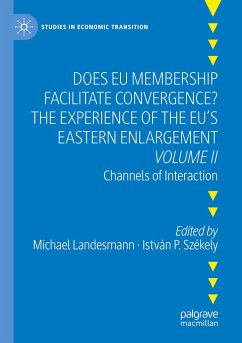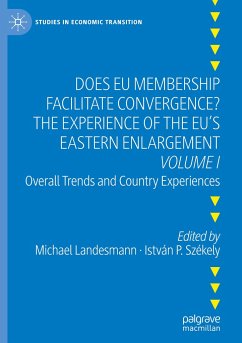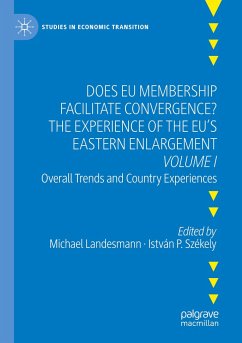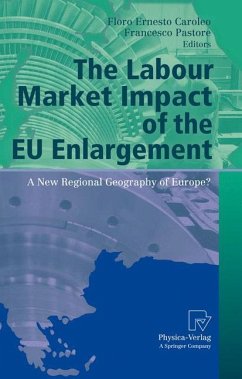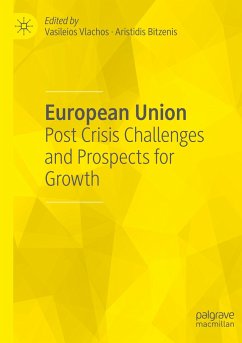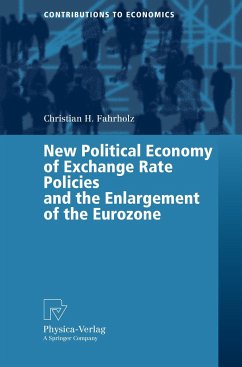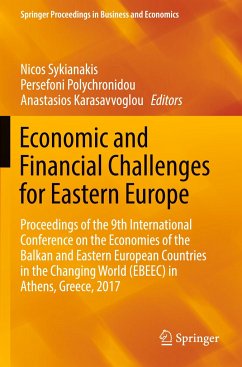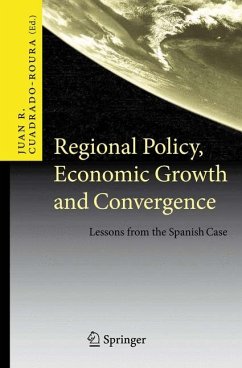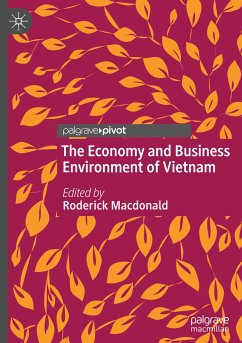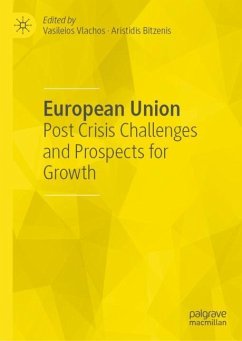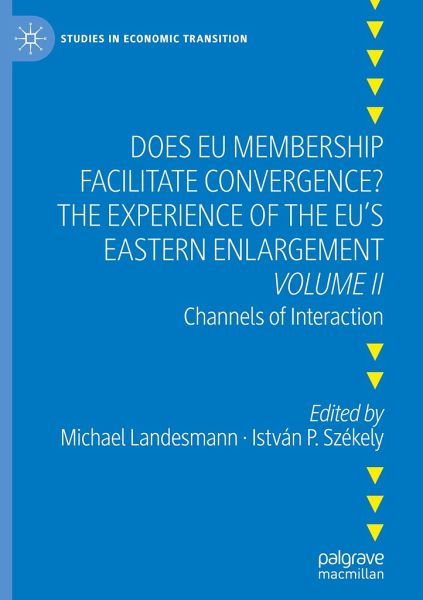
Does EU Membership Facilitate Convergence? The Experience of the EU's Eastern Enlargement - Volume II
Channels of Interaction
Herausgegeben: Landesmann, Michael; Székely, István P.

PAYBACK Punkte
61 °P sammeln!
This edited volume analyses the channels through which EU membership contributed to the convergence process of member countries in the Baltics, Central-Eastern and South-Eastern Europe. These channels include trade, investment, finance, labour, and laws and institutions. Global integration has certainly played an important role. A large part of FDI flows and financial integration in the world have been persistent features of globalization. Have these countries experienced more intensive integration through these channels because of EU membership, with its much tighter institutional and politic...
This edited volume analyses the channels through which EU membership contributed to the convergence process of member countries in the Baltics, Central-Eastern and South-Eastern Europe. These channels include trade, investment, finance, labour, and laws and institutions. Global integration has certainly played an important role. A large part of FDI flows and financial integration in the world have been persistent features of globalization. Have these countries experienced more intensive integration through these channels because of EU membership, with its much tighter institutional and political anchorage, than their fundamentals and global trends would suggest? Contributions by lead researchers of the area address different aspects of this question. .





